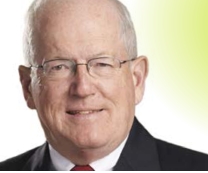Businesses, organizations and institutions are adapting to a very different world
We all, or at least most of us, have been working from home now for weeks, due to the coronavirus pandemic. Where all of this will lead is not clear at this writing, but there are some observations that can be made.
Immediately after passage of the federal CARES Act there was a mad dash by businesses of all sizes, to apply for loans under the Payroll Protection Program.
Starting on the first day applications could be submitted, the volume of applications was huge. Bankers worked around the clock and through the weekends, to get these applications processed. This was made somewhat complex by evolving rules and understanding of what was required, and different banks required different kinds of backup information. At one point, I think I was advising over 20 clients at various points in the process.
While all banks should be thanked for the hard work done to help clients and non-clients, special note should be made of the small banks which did big work. At the risk of missing others that did noble work, the loan officers at St. Mary’s Bank, Bar Harbor Bank, Bank of New Hampshire, Primary Bank and Millyard Bank were notably helpful to clients of mine seeking these loans.
Many deadlines have been extended — for paying taxes, filing legal forms and other matters. One thing not yet extended, but which most everyone can do from home, is complete the U.S. Census form online. This is especially important so New Hampshire gets its fair share of funds and other assistance in the future. It only takes a couple of minutes, and the information is secure and protected. Everyone should be sure to be counted.
Life changed for individuals, who had to learn to work from home and became well versed (or maybe not so well) in things like Zoom, FaceTime, GoToMeeting and other online means to hold meetings while remaining at home. Remote notarizing of documents, not recognized in statute, became allowed by executive order, and notaries public had to learn how to follow the rules involved.
Teachers had to learn how to teach online, at all levels of schooling, and students had to learn how to be taught. This might have been somewhat easy for middle and upper-middle class families, but was especially challenging for those without internet or computers, largely in the cities.
Many of those same students were missing the free and reduced price meals they normally relied on in school, and school districts sent school buses with school lunches in the larger cities like Manchester.
However, feeding these students on weekends is a challenge, and charities, colleges and individuals stepped up. The Granite United Way, New Hampshire Catholic Charities, New Hampshire Charitable Foundation and other funders set up special emergency funds. How these meals are going to be provided over the summer is a real worry.
The state’s colleges face special challenges. Students had to go home and study remotely. Colleges faced the question of whether to refund room and board fees, and most if not all decided to make refunds, often having serious budget consequences. Applying students could not attend campus events to make their final decisions, and colleges extended deadlines and hope for the best, not knowing what the fall semester will look like, or even if there will be one on campus.

Cook on Concord
On the lighter side, some of the required practices changed life in little ways. People go to bank drive-up windows wearing masks, which previously would have gotten them arrested. Those over 60 get special hours at the supermarkets, if they are willing to get up that early, with the reward being that there may be more toilet paper first thing in the morning. These hours seem more crowded than the rest of the day.
In many acts of kindness, neighbors look out for those alone and families have nightly or weekly “family dinner” by Zoom or other video means.
Sadly, as the crisis persists, more and more people learn of the death of someone they know, or a close friend or family member knows. We all are saddened by the deaths of musicians, businesspeople or acquaintances who make this all real. We appreciate those in hospitals, nursing homes, supermarkets, charities or other essential activities who go to work every day to keep the rest of us safe and able to stay home.
Brad Cook is a Manchester attorney. The views expressed in this column are his own. He can be reached at bradfordcook01@gmail.com.